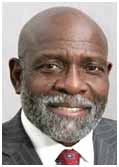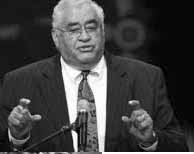In 1947, Dr. Mordecai W. Johnson, president of Howard University, stood before a House Labor Department Federal Appropriations subcommittee and extolled the fact that 17 Land-Grant Colleges were being underfunded with small allotments which were crippling the predominately black colleges and universities in their efforts to grow and prepare graduates for professional roles in the Southern states.
He further stated that “the inadequacy of educational opportunity afforded by State-supported schools in 17 Southern States which maintained separate land grant colleges for white and colored students,” was a national scandal and, “this inadequacy is due directly to the inequitable distribution of both Federal and State funds.”
Dr. Johnson told the group (headed by Frank B. Keefe of Wisconsin), that “Howard University is the only colored institution with a first class law school and the only one that offers opportunity comparable to first class State universities like Wisconsin’s or North Carolina’s.”
He revealed that although colored institutions served 10,000 students at the time, they received less than $5,000,000 – less than the budget of the University of Louisiana (now Louisiana State University) alone.
In addition, practically all of the colored institutions had to concentrate on undergraduate education, teacher training and agriculture because they could not seriously offer or give education on the graduate level.
(-Baltimore Afro-American, 1947)
 In 2011, Dr. Charlie Nelms (past president, North Carolina Central University) published “A Call to Action”, a policy directive intended to spur a national dialogue concerning the revitalization of the historically black colleges and universities as an important sector of American higher education.
In 2011, Dr. Charlie Nelms (past president, North Carolina Central University) published “A Call to Action”, a policy directive intended to spur a national dialogue concerning the revitalization of the historically black colleges and universities as an important sector of American higher education.
Ironically, the same issues that were addressed 67 years ago are still prevalent today.
What is different these days are the apathetic views taken by some African Americans questioning the value of supporting these Black colleges and universities. From noted authors to administrators to avid supporters, there is a real concern that unless we can fire up enough dialogue and support in the Black communities, some of our HBCUs are headed for extinction.
 In a speech by Dr. Frederick Humphries, Florida A&M’s past president, on FAMU’s present dilemma (and it speaks to ALL of HBCUs):
In a speech by Dr. Frederick Humphries, Florida A&M’s past president, on FAMU’s present dilemma (and it speaks to ALL of HBCUs):
“It is critical that all persons in leadership must have a fundamental appreciation and respect for our history… the special role that FAMU plays and the unique dynamics that it must navigate to be successful in a landscape that does not want FAMU to succeed and is actively seeking to starve the University to death.
One cannot adopt a model that is successful at a PWI (Predominately White Institution) and just drop that model into FAMU and expect it to work without SIGNIFICANT amounts of nuance and finesse.
Any notion of I’m from a PWI, I get it, the current and former University community doesn’t is arrogant, inherently naïve and will fail; the stakes are too high to not be thoughtful in every action that FAMU administrators/employees take. As a community we must make our views about decisions at FAMU visible but respectfully – the world is watching and we must consistently demonstrate that we are serious, thoughtful and deliberate in everything that we do. The Alumni must support these Universities that provided them with tools to be successful in life.”
 This past summer, Dr. William Harvey, Hampton University’s president who serves as chairperson on President Obama’s Advisory Board on Historically Black Colleges and Universities, called out the Feds for drastically reducing financial support for HBCUs during the event.
This past summer, Dr. William Harvey, Hampton University’s president who serves as chairperson on President Obama’s Advisory Board on Historically Black Colleges and Universities, called out the Feds for drastically reducing financial support for HBCUs during the event.
He later stated that we must nevertheless pick up the mantle in this crusade to awaken the people to engage in reinforcing the guidelines for bringing back support of our HBCUs:
“I believe in the relevancy of HBCUs, but believing in them doesn’t mean that we are all alike. Out of 105 HBCUs, they are not all monolithic. There are some that are doing very well, some that are doing poorly, and most of them are somewhere in the middle. It’s the same for predominantly white colleges.
I don’t want to opine on what other HBCUs could or should do, because I only know what’s best for Hampton and what works for Hampton.
A lot of presidents, black and white, when they are newly elected, will ask to come and spend a day with me. I talk with them very frankly about leadership, and the things that have worked for Hampton over my years as president.
I think it’s up to every HBCU president to best determine what will work or what their vision is for that institution, and then to make it happen.
If you look at institutions that are in trouble or have failed, it’s because they haven’t been able to bring in the resources. It takes money to build a university, and not just money, but an understanding that there are two sides to a ledger. You can’t just spend aimlessly. No matter what his or her background is, the president must have an understanding of finances and budgeting.”
A president must have an understanding of securing resources, to retain quality faculty support and for infrastructure and scholarships to students. In order to do that, you’ve got to bring in resources, no matter if you’re a private or public institution.”
This is not a declaration about leadership alone. Alumni supporters are very much instrumental in this mix and without them, it amounts to more futility for the future growth, student enrollment and all other extracurricular activities.
It raises a question about the consciousness of those who have made a significant impact on society as a whole…the successful businessman, entertainers, athletes and recipients of good fortune due to their affiliation with and from HBCUs. Outside philanthropies are prevalent also, as they show their generosity toward these schools.
Hopefully, we can rally around this cause and divert the attention away from the naysayers who have no investment in the future of thousands of students, teachers and athletes who want to attend a Historically Black College or University.
We know you have an opinion…weigh in…be a part of the groundswell of supporters!
(See more at Black College Sports History & Legends …www.ehbcsports.com)

